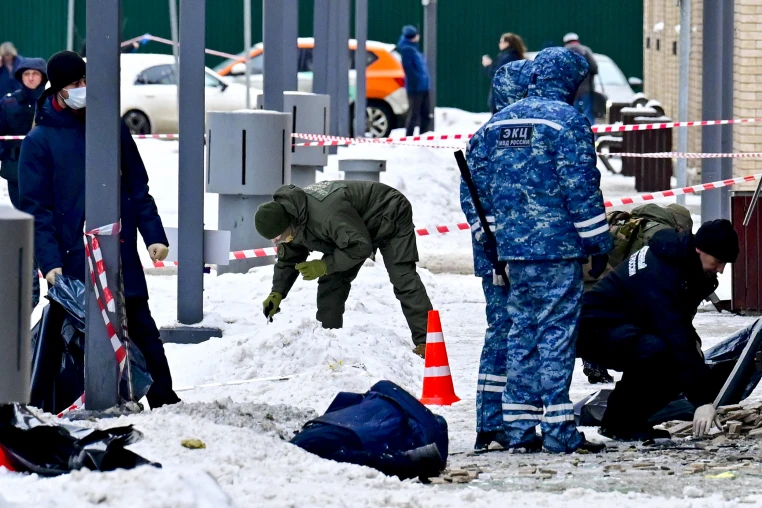Russia has arrested a suspect in connection with the killing of Igor Kirillov, the head of the army’s chemical weapons division, in a bomb blast in Moscow on Tuesday. The attack, which also claimed the life of Kirillov’s assistant, was reportedly carried out by an Uzbek national, according to Russian investigators.
The blast, which took place outside an apartment building in southeastern Moscow, involved an explosive device attached to a scooter. The Kremlin has blamed the attack on Ukraine, accusing the Kyiv regime of resorting to terrorist methods.
Investigators identified the detained suspect as a 1995-born Uzbek citizen, who allegedly confessed to being recruited by Ukrainian special forces. According to the Russian Investigative Committee, the man was promised $100,000 and a European passport in exchange for executing the bombing. Video footage shows the suspect handcuffed, with cuts on his face, admitting his involvement.
The suspect said he placed the explosive device on a scooter outside Kirillov’s apartment building and remotely detonated it. Investigators also revealed that a camera mounted on a car parked nearby streamed the attack live to organizers in Dnipro, Ukraine.

The suspect is facing charges of terrorism, and Russian authorities are working to identify other individuals involved in the plot.
On the same day, Ukraine’s security service, the SBU, claimed responsibility for the attack. According to an SBU source, the operation was a targeted strike against Kirillov, whom they described as a “war criminal” due to his alleged involvement in using chemical weapons against Ukraine’s military. The SBU confirmed charges had been filed against Kirillov for the use of chemical weapons, particularly in Ukraine’s war zone.
The Russian government, however, insisted on a terrorism investigation, as the blast took place in a residential area, increasing its impact on civilians.
Kirillov, 54, was a prominent figure in Russia’s military and had been recently sanctioned by Britain for his alleged role in the use of chemical weapons in Ukraine. Britain and the United States have accused Russia of using chemical agents like chloropicrin in violation of international conventions, though Russia denies possessing such an arsenal.
Kirillov had frequently accused Ukraine and the West of operating secret biological laboratories in Ukraine, claims that have been widely debunked by independent fact-checking organizations.
The attack sparked global reactions. While British officials refrained from mourning Kirillov’s death, citing his role in imposing suffering and death on the Ukrainian people, the United States distanced itself from the operation, stating it was unaware and did not support such actions.
Russian foreign ministry spokesperson Maria Zakharova condemned Ukraine’s allies, accusing them of complicity in “war crimes” for their silence or support of such targeted killings.
While assassinations on Russian soil are not unheard of, attacks within Moscow, where the conflict with Ukraine often seems distant, are rare. Previous high-profile targets have included nationalist writer Darya Dugina and military correspondent Maxim Fomin, both of whom were killed in separate bombings in recent years.


